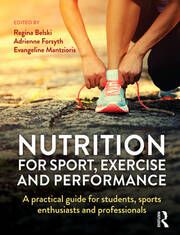When it comes to sports and performance, proper nutrition plays a crucial role in enhancing athletic abilities and improving overall performance. What athletes eat before, during, and after exercise can greatly impact their energy levels, endurance, and muscle recovery. In this article, we will explore the importance of nutrition for sports and provide some guidelines for a well-balanced diet that can optimize athletic performance.
The Importance of Proper Nutrition
Athletes require more energy and nutrients compared to sedentary individuals due to the increased physical demands placed on their bodies. The right balance of macronutrients (carbohydrates, proteins, and fats) and micronutrients (vitamins and minerals) is essential to provide the necessary energy and support muscle growth and repair. Carbohydrates serve as the primary fuel source for exercising muscles. They are broken down into glucose, which is stored as glycogen in the muscles and liver. During physical activity, glycogen is converted back into glucose to provide energy. Therefore, it is important for athletes to consume sufficient carbohydrates before exercise to maintain adequate glycogen stores and maximize performance. Protein is critical for repairing and building muscles. During exercise, muscle tissues endure micro-tears, and proper protein intake helps repair and strengthen those muscles. Athletes should aim to consume high-quality proteins such as lean meats, poultry, fish, eggs, and plant-based sources like legumes and tofu. Fats are another important energy source during extended periods of exercise. Healthy fats, including monounsaturated and polyunsaturated fats found in avocados, nuts, and seeds, provide essential nutrients and promote cardiovascular health.
Pre-Exercise Nutrition
The meal or snack consumed before exercise should provide the necessary energy and nutrients to fuel the body. It is recommended to consume a pre-workout meal 2-3 hours before exercise to allow for proper digestion. This meal should include a combination of carbohydrates, proteins, and healthy fats. An example of a pre-exercise meal could be grilled chicken breast, brown rice, and steamed vegetables. This provides a good balance of macronutrients and ensures adequate energy levels during physical activity. For those who cannot eat a full meal hours before exercise, a smaller snack can be consumed 30-60 minutes before the workout. A banana with a tablespoon of peanut butter or a protein shake made with milk or a plant-based alternative can provide a quick source of energy.
Nutrition During Exercise
During longer-duration exercises or intense workouts lasting more than 60 minutes, consuming carbohydrates is essential to maintain energy levels. Sports drinks, energy bars, or gels that contain glucose or fructose can provide a quick source of carbohydrates and replenish glycogen stores. Hydration is also crucial during exercise. Drinking water before, during, and after physical activity helps regulate body temperature, prevent dehydration, and maintain optimal cognitive function.
Post-Exercise Nutrition
After a workout, the body needs nutrients to repair muscle tissues and replenish energy stores. Consuming a combination of carbohydrates and protein within 30-60 minutes post-exercise can optimize recovery and enhance muscle growth. An ideal post-workout meal could contain grilled salmon, sweet potatoes, and a side of green salad. Alternatively, a protein shake made with milk or a plant-based alternative and a banana can also provide the necessary nutrients.
Additional Considerations
In addition to a well-balanced diet, athletes should pay attention to their individual nutritional needs. Factors such as body composition, training intensity, and duration may require adjustments to macronutrient ratios and overall calorie intake. It is also important to note that each individual may have unique dietary requirements or allergies. Consulting with a registered dietitian who specializes in sports nutrition can provide personalized guidance and help develop a nutrition plan tailored to specific needs and goals.
Conclusion
Nutrition plays a vital role in sports and performance. Providing the body with the right balance of macronutrients and micronutrients can ensure optimal energy levels, endurance, and muscle recovery. By focusing on pre-exercise, during-exercise, and post-exercise nutrition, athletes can maximize their athletic performance and achieve their goals. Remember, every body is different, so personalized guidance from a sports nutrition professional is always recommended.


